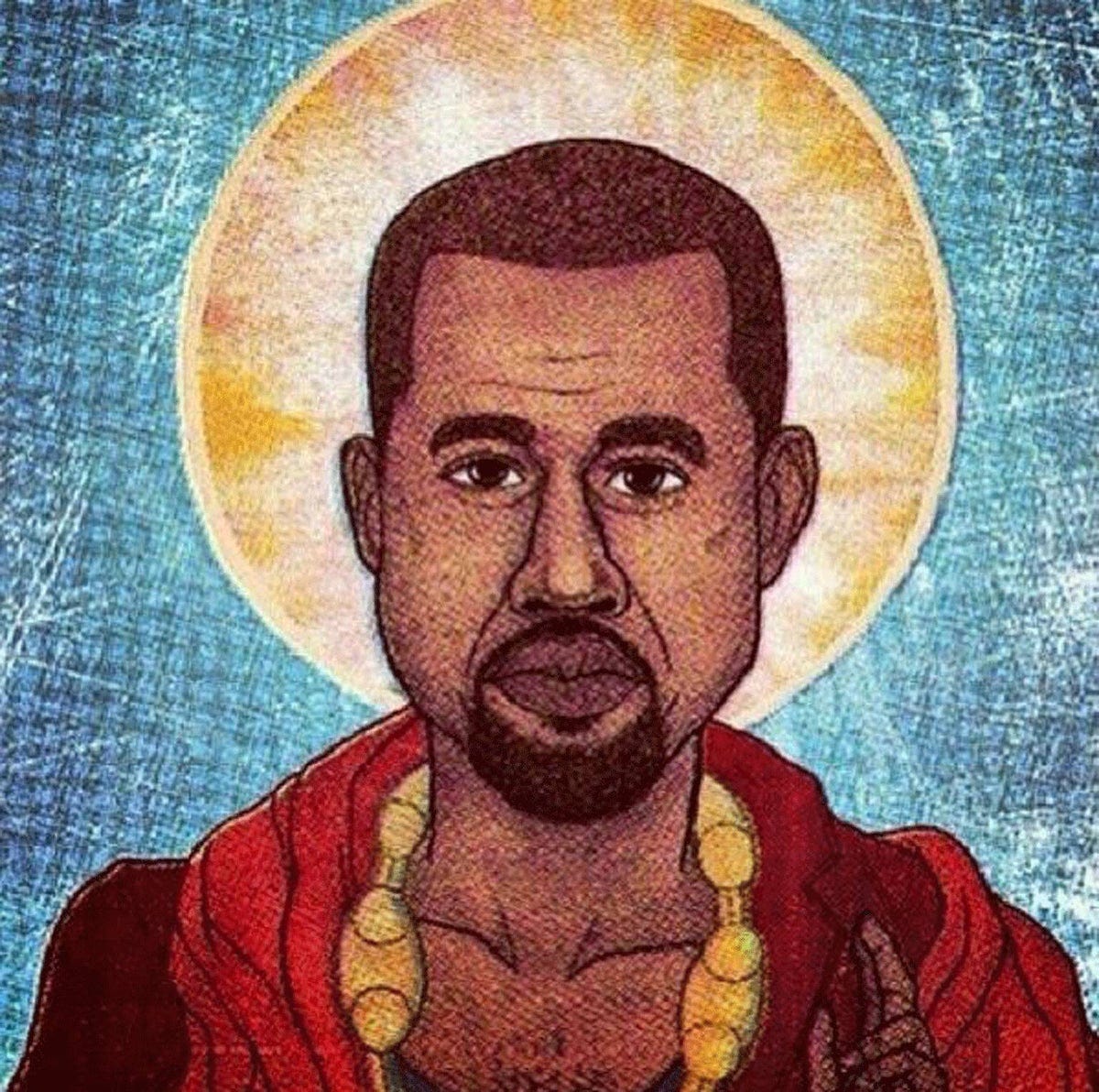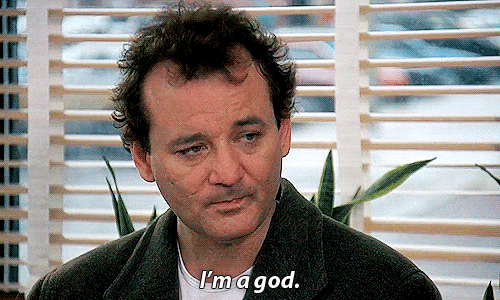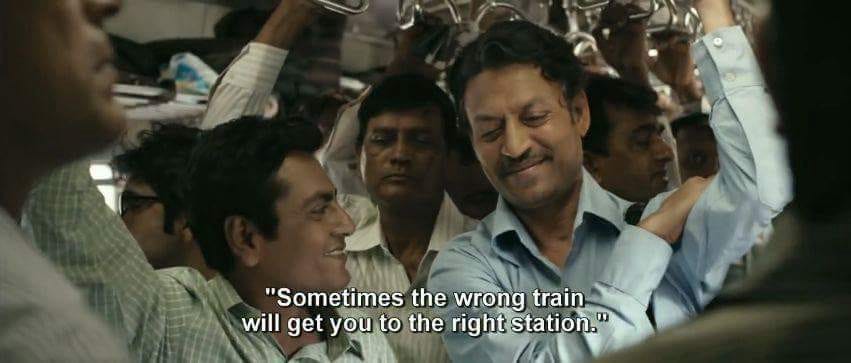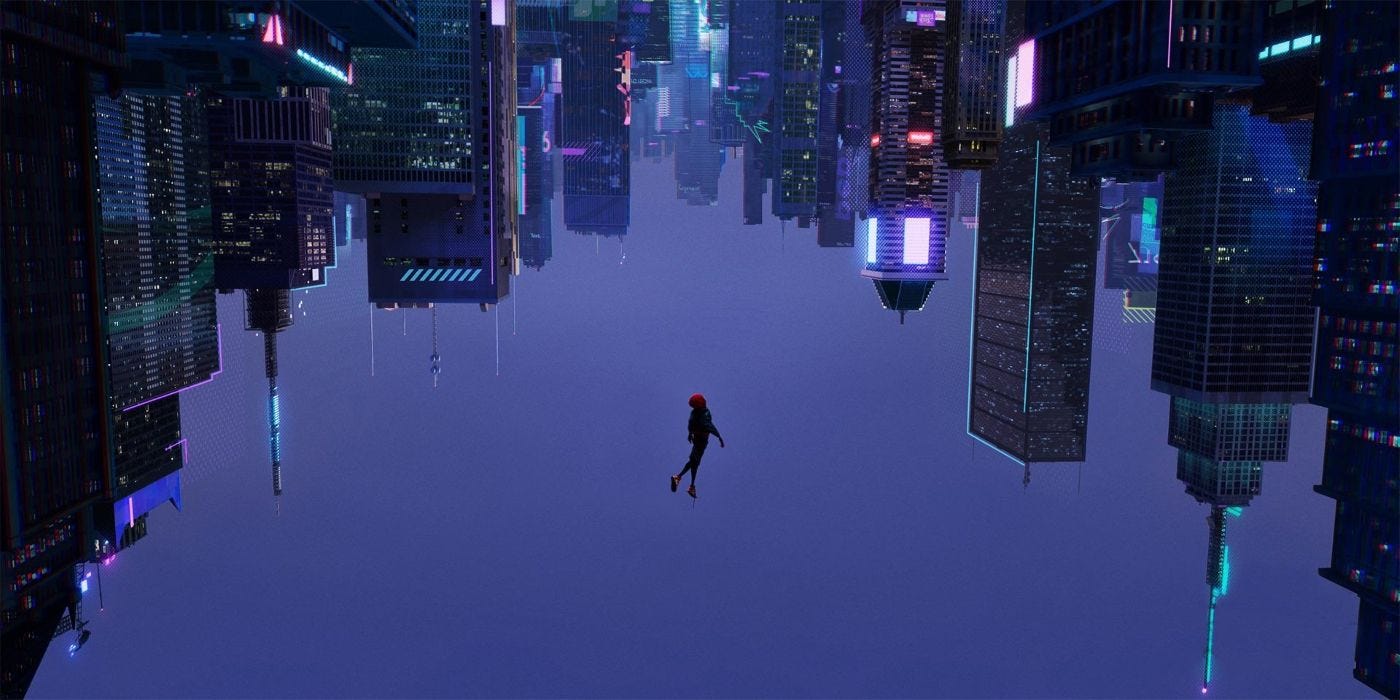How to Become a God (Pt 1?)
OR: Why You Should Be Living in the Fourth Dimension
This piece is the first draft. It’s a series of disconnected thoughts for a longer essay (or essay series).
Please email me and let me know what you think. What you say will directly mold what the final draft of this essay will look like.
“To doubt yourself is to doubt God” - Tej Dosa
1/
You may have heard the phrase...
Want to make God laugh?
Make plans.
Most people misinterpret this...
It doesn’t mean stop making plans...Well, not exactly.
It means to start laughing with God.
It means to start laughing AS IF you are a God.
2/
In the classic movie Groundhog Day, the main character declares himself to be a God. He has lived the same day countless times and because of it, he knows everyone and everything that’s going to happen.
His justification for why he’s a God is interesting. He makes a statement about God that I find very profound:
“Well maybe the real God uses tricks, you know? Maybe he's not omnipotent. [Maybe] he's just been around so long he knows everything.”
This theme is repeated in various different movies, books, and comic books.
In Vonnegut’s Slaughterhouse 5, the protagonist ends up being abducted by aliens called Tralfamadorians.
The Tralfmadorians have the ability to see in the fourth dimension.
“[For them] all moments, past, present and future, always have existed, always will exist. ... When a Tralfamadorian sees a corpse, all he thinks is that the dead person is in a bad condition in that particular moment, but that the same person is just fine in plenty of other moments. Now, when I myself hear that somebody is dead, I simply shrug and say what the Tralfamadorians say about dead people, which is ‘so it goes.’”
I can go on with quotes forever. There are so many stories that repeat this theme. Needless to say, this idea is something that clearly resonates with us as human beings.
All these stories suggest something radical. They suggest that:
The only difference between us and God is that God can see in the fourth dimension.
3/
What does it mean to see in the 4th dimension?
It means seeing everything in your life as if it’s already happened. It means KNOWING that your life will turn out for the better no matter what happens. It means living a life of radical confidence in yourself, your luck, and your life.
To see in three dimensions means to be worried sick that you will not get a job you applied for.
To see in four dimensions is to realize that it doesn’t matter if you get the job or not, either way, you’ll be completely fine.
To see in three dimensions means you NEED the job to feel whole.
To see in four dimensions means you WANT the job, but whether or not you get it doesn’t affect your life.
To see in three dimensions means you overidentify with the worry that you feel about getting the job.
To see in four dimensions means you experience your worry, but you don’t identify with it. You experience worry, but are not attached to it.
It’s like that quote from the movie, Lunchbox:
When you see in the 4th dimension no matter the train, every station is the right one.
Does that make sense?
Probably not yet.
4/
Let me explain in another way
When I was a kid, I wanted to be an actor.
Part of this was because I was obsessed with a certain Bollywood actor.
But I wanted to be an actor for a deeper reason too.
I was a nervous kid. I felt afraid and restricted by life. Since we only have one life, we only have very little we get to experience.
To me, being an actor was the greatest thing ever.
Think about it.
As human beings, we only get to live one lifetime. And our life is full of pain, suffering, and struggle. We don’t often get the time to enjoy our lives.
As an actor, you get to live so many people’s lives. You get to experience all the feelings, wants, and stories of other people without any of the lasting impact.
You, the actor, are always safe even if the characters’ lives were tragic.
You, the actor, knew the character’s whole life and knew that even the moments that were difficult were only small moments of the character’s lives.
As I think about this fourth dimension idea, I realize that we can live the same way.
We are not our “characters.”
We are not our jobs, we are not our skills, we are not the contents of our wallets.
We are not our body, we are not our emotions or even our wants.
So what are we?
We experience emotions. We are not our emotions.
We experience wants. We are not our wants.
We experience physical sensations. We are not our physical sensations.
We are the experiencer. We are not our experiences
I’ll tell you what you really are.
You’re the “actor” that’s playing your “character”.
5/
Our conversation here reminds me of Nietzsche’s idea of eternal recurrence (this wouldn’t be my newsletter if I didn’t name-drop a pretentious philosopher).
Nietzsche believed that we must live our lives as if our lives were to eternally recur. As if we would have to live it again.
To Nietzsche, to live like this meant we have Amor Fati (love of fate).
To have Amor Fati is to realize that everything that happens in your life is necessary and good.
“To redeem the past and to transform every ‘It was’ into an ‘I wanted it thus!’ — that alone do I call redemption!” - Nietzsche
When you have Amor Fati, you can be a God.
Everything that has happened to you, has happened to you because you wanted it to happen. It happened because it was good and necessary to get you to where you are now.
And so, everything that will happen to you will be good as well. Because looking back from some point in the future, you’ll be able to recognize how good and necessary it all was.
6/
If you do indeed want to become a God…at a certain point, you have to jump.
You have to dare.
It’s only when you believe that you are a God, that you will magically become one.
I’m not being hyperbolic when I say that the ability to see in the fourth dimension and become antifragile is a superpower.
And if you are able to digest and apply what I’ve written you’ll become a superhero.
But ironically, you won’t know until you make the leap and struggle to apply the lessons from above.
I’m reminded of one of my favorite superhero movies, Spiderman: Into the Spiderverse.
In the movie, a young spiderman (Miles Morales) is bitten by a radioactive spider and he gains superpowers.
Except, he struggles to use his newfound powers.
He meets other “spider people” who are talented, smart, and capable.
And he feels out of place.
Why isn’t he naturally learning how to use his powers? What does it take for him to actually be a superhero?
Filled with doubt Miles asks a wiser more experienced spiderman (named Peter Parker) a question:
“When will I know I’m ready?”
Peter Parker’s answer is great:
“You won't.
It's a leap of faith.
That's all it is, Miles… A leap of faith.”
It’s a beguiling and frustrating answer.
But Miles takes Peter at his word.
At the climax of the movie,
"Miles walks to the edge of the roof, the wind buffeting ... and LEAPS!," the script says. "The camera is UPSIDE DOWN. Miles isn't falling through frame. He's RISING."
THAT is the moment when Miles becomes a superhero in our eyes…and even his own eyes.
It’s not when he gains his powers or when he puts on his costume.
It’s when he has FAITH.
It’s when he makes the leap.
That’s when he RISES to the occasion.
That’s when he truly becomes a superhero.
We will get to the how of becoming a God in a future newsletter, but before you get to the how, you must first make the leap just like Miles did.
7/
People misinterpret faith.
Faith isn’t for God, it’s for the believer.
God doesn’t change you through your faith.
You change yourself through your belief.
God doesn’t speak to us but within us.
Can you have faith?
Can you listen to the God within you?
Or will you live forever in doubt?
To become a God is a dangerous gamble.
It’s a leap of faith.
It’s daring to become who you are, rather than who you’ve been told to be.
So in the end, I only have one question:
Do you dare?





